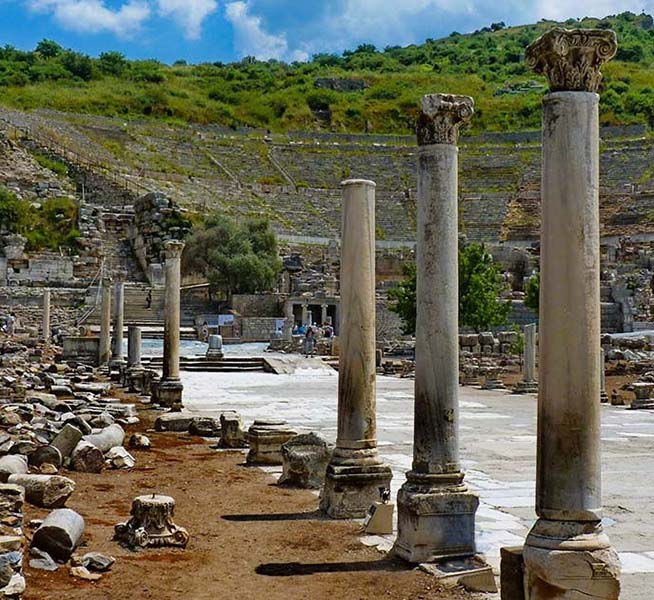Ephesus
Ephesus is significant for its pivotal role in Christianity, its prominence as a cultural center, and its position as a major trade hub. As a center for the spread of Christianity, Ephesus hosted key figures like Paul and John, who preached there. The city is mentioned in the New Testament, and the Book of Ephesians may have been a letter from Paul to the Ephesian Christians. It is also believed that Mary, the mother of Jesus, spent her later years in Ephesus. In terms of culture, Ephesus was a leading intellectual and political hub, home to the second school of philosophy in the Aegean and a place where knowledge and ideas flourished. As a vital trade center, Ephesus was the western terminus for East-West trade, with a harbor that facilitated the export of goods to Greece, Italy, and other parts of the Roman West. Historically, the city developed around an ancient shrine dedicated to the earth goddess Artemis (Roman Diana) and was ruled by various conquerors, including the Persians and Greeks. However, by the third century A.D., the harbor began to silt up, contributing to the city’s decline. Today, visitors can step back in time and experience life in the ancient world through the ruins of Ephesus.



